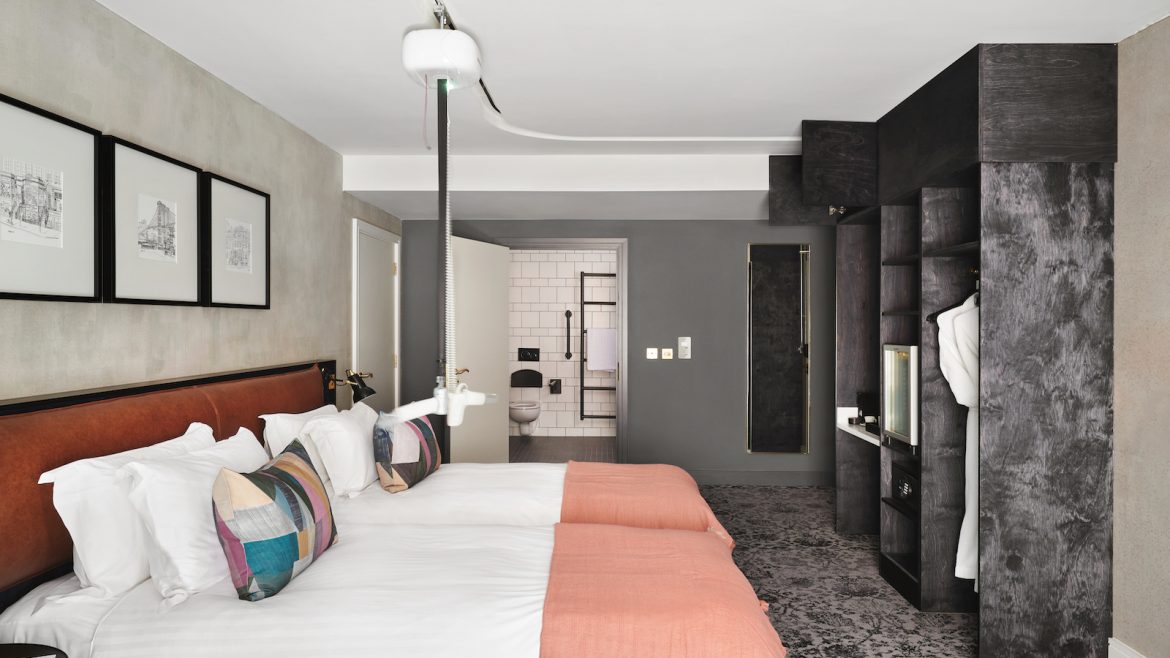Part 75: why stylish accessible accommodation in hotels pays
https://hoteldesigns.net/wp-content/uploads/2023/04/20-07-31_hotel_brooklyn_motionspot_©_Henry-Woide__0045_GIF2_v3-1024x640.jpg 1024 640 Hamish Kilburn Hamish Kilburn https://secure.gravatar.com/avatar/81d2884aeeac3c45e38c47cacc508c2178bab773320ff2d6a83bdcc803d93aec?s=96&d=mm&r=gEditor Hamish Kilburn identifies two innovative and human-centric hospitality initiatives when exploring the economical, social and design benefits from hotels investing in stylish accessible solutions for their guests…
During my teens, in between ‘studying’ at university, I was given unprecedented access into the lives of the British Paralympic Sailing Team. Mainly during, but not always limited to, holidays from school and then university, I travelled down to the South Coast of England, to Portland, which became a second home.
My role as tuning crew during training and shore crew during major regattas – a minor cog in a much larger machine of physios, coaches, nutritionists and psychologists – meant that I was living with, and more importantly travelling with, the performance team. And it was during this time when I first experienced accessible rooms through the eyes of a guest checking in. If you were lucky, these rooms would boast panoramic views that stretched across… the car park, or face a brick wall.
Years later, in 2020, a few years into my editorship at Hotel Designs, little had changed. I would check in to some of the world’s most spectacular hotels and ask to see the accessible rooms. Each time, I would be met with expressions of confusion – followed by eyes glancing to see if all of my limbs were attached. Very rarely would these areas of the hotel share any cohesive design notes to the rest of the property.
After few too many of these bleak experiences, I was asked to review Hotel Brooklyn, a hotel that prided itself on sheltering 18 fully accessible suites – my mind was blown not just for me, but also for potential readers who thought that the industry had given up on them.
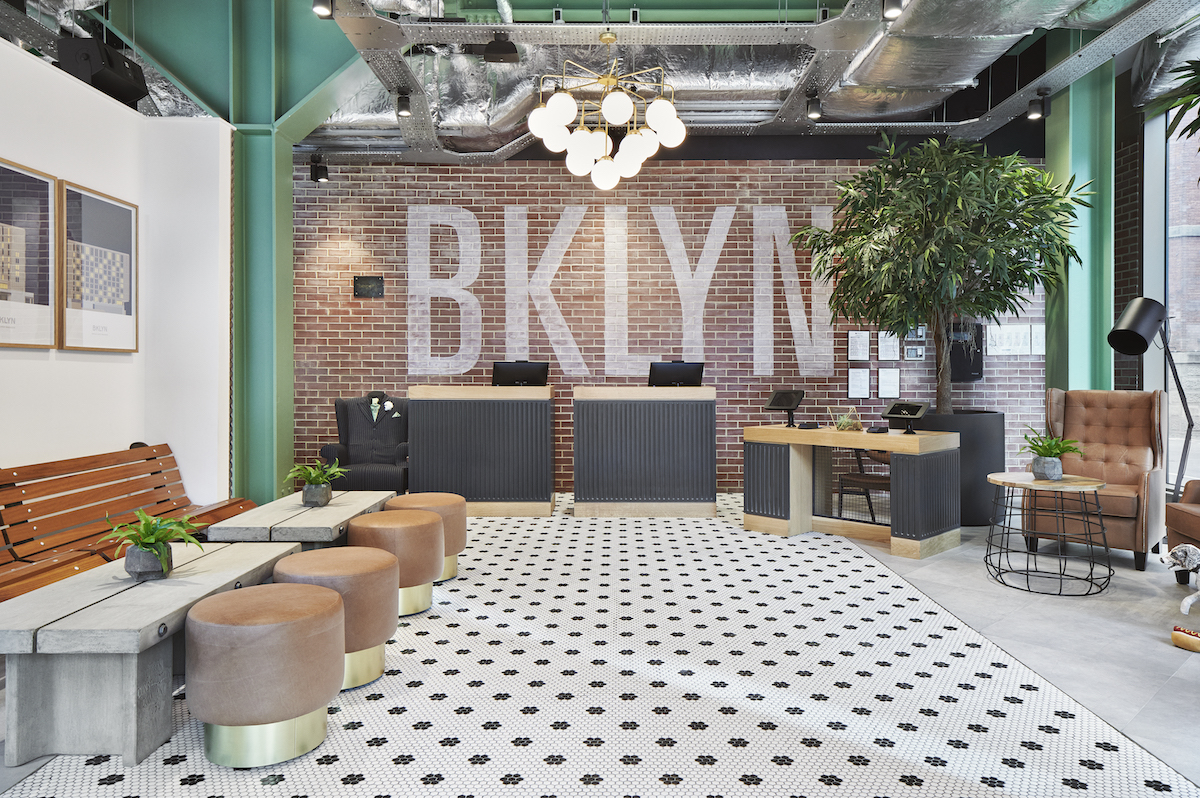
Image credit: Henry Woide
Designed by Motionspot to help delicately balance style with functionality, the suites featured hidden ceiling track hoists, electric curtains and inviting, non-clinical-looking bathrooms complete with lever shower controls discreet matt black grab rails and bars. “In collaboration with Bespoke, we have been able to turn traditional hotel industry thinking on its head,” explained Ed Warner, CEO and Co-Founder of Motionspot. “Too often, accessible rooms feature second- rate design and are less desirable but, at Hotel Brooklyn we have proven that the beautifully designed accessible rooms can be the most popular in the hotel. Making accommodation more accessible is not just the right thing to do, but it also makes good business sense.”
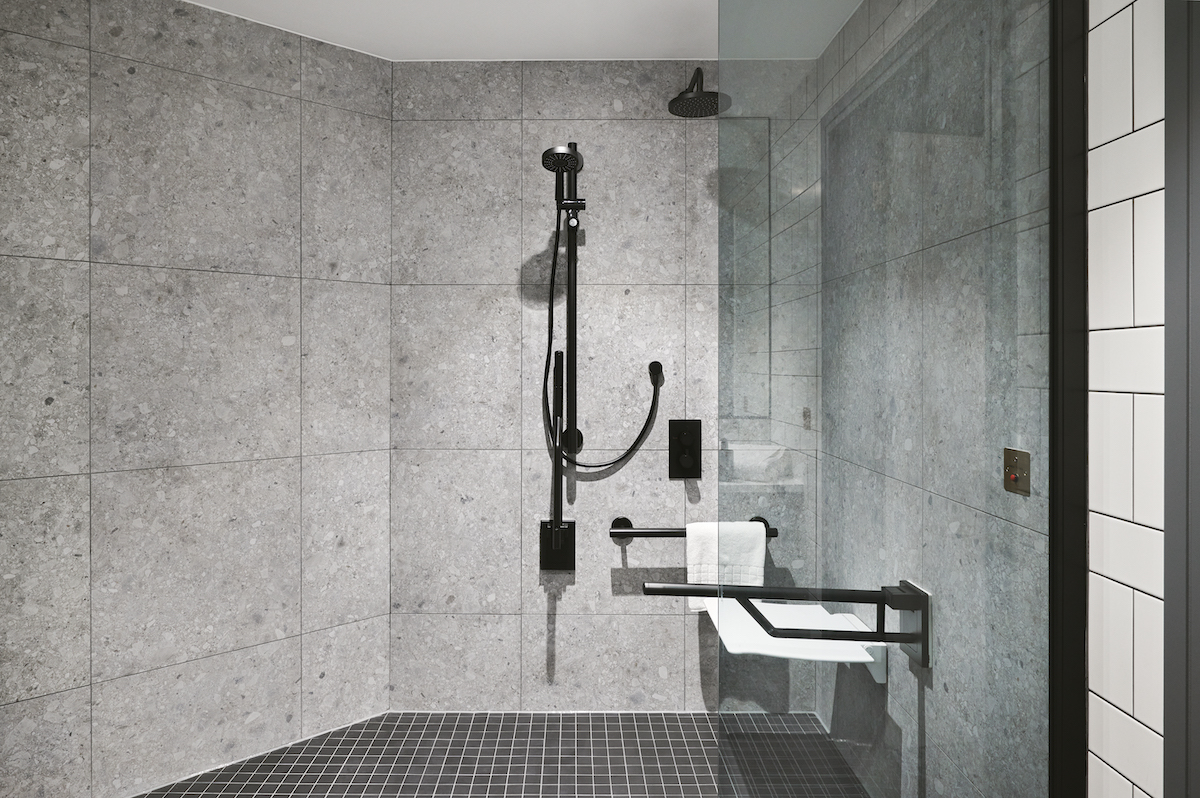
Image credit: Henry Woide
The group, led by pioneer Robin Sheppard, President of Bespoke Hotels, really understood the demands to ensure that the hotel would be for everyone. “Hotel Brooklyn has demonstrated how accessibility can be incorporated into a luxury hotel,” he said. “We acknowledge that we are on a journey to provide accessible experiences for all guests, and the feedback we receive from visitors is helping us to raise the bar even further at future Hotel Brooklyn sites. We hope the success of Hotel Brooklyn inspires others in the industry to look at how they can improve their accessible facilities to help make UK hospitality more accessible for all.”
Three years since opening, the decision to stand out from the crowd can be measured in the perception guests have of the hotel as well as in revenue. In 2022, the hotel’s first full-trading year after the pandemic and Covid-19 restrictions lifted, its accessible suites brought the hotel an additional £132,000 over 12 months. This equates to £7,333 additional revenue per accessible room and just more than 100 extra bed nights every four weeks.
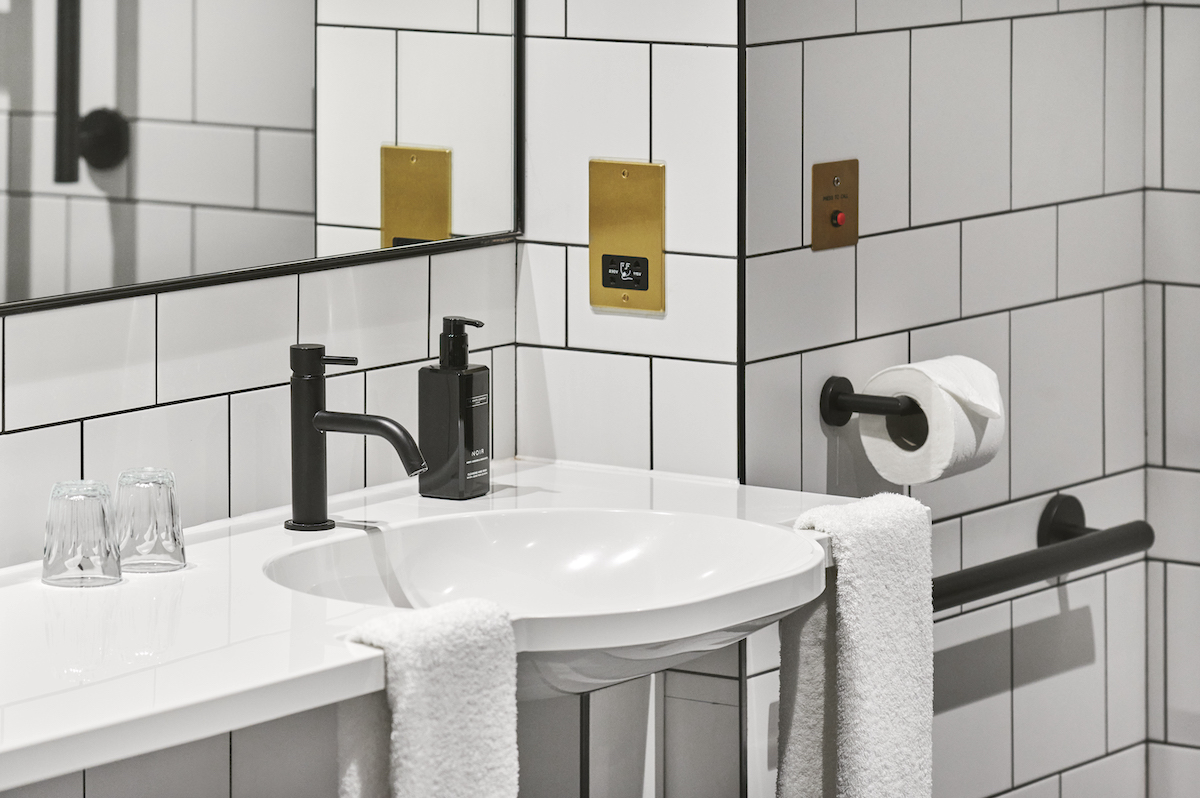
Image credit: Henry Woide
The vision of embedded accessibility at Hotel Brooklyn extends throughout the whole hotel. The knock-on impact has made the hotel a sought-after event venue for groups that include guests with access needs. From charity events and award ceremonies to accessible weddings, Hotel Brooklyn attracts everything from large annual events to smaller, regular get-togethers, with many guests also booking overnight stays. Combined, such events contributed £85,000 additional income in 2022, bringing the total contribution from accessible facilities to £217,000 across the year.
Central to the access vision at Hotel Brooklyn were the focus groups Motionspot conducted with people of different lived experiences of disability. While inclusive design innovation and thinking has moved on significantly since the studio first designed Hotel Brooklyn Manchester, feedback and insights continue to be gathered to improve the hotel’s accessibility. These include the addition of profiling beds; use of the WelcoMe app that allows guests to communicate their access needs to the customer service team ahead of check-in; and detailed online Access Galleries which show everything from the height of the key-card entry point from the street to the fact that two members of staff use British Sign Language (BSL). On a wider scale the intention is to continue to improve the access across Bespoke Hotels’ other properties and inspire the UK hospitality industry at large.
Aside from Hotel Brooklyn, which effortlessly filled a gap in the market for stylish accessible rooms and generally just ensure that every guest’s experience is one that starts and ends with open communication – proving to other hoteliers that the right decision is often the smart choice, manufacturers are also at the forefront of change. Bathroom brand KEUCO recently came forward with a new range of design-led grab rails, accessories and bars. The design of KEUCO AXESS, designed by Porsche Design Studio F. A focuses on the essentials, combining aesthetics and barrier-free functionality in a stylish and innovative way, without making the special functions visually obvious. It is this aspect that will pleasantly surprise design lovers who want to see accessibility integrated into the bathroom and products with a minimalist appearance with design that inspires.
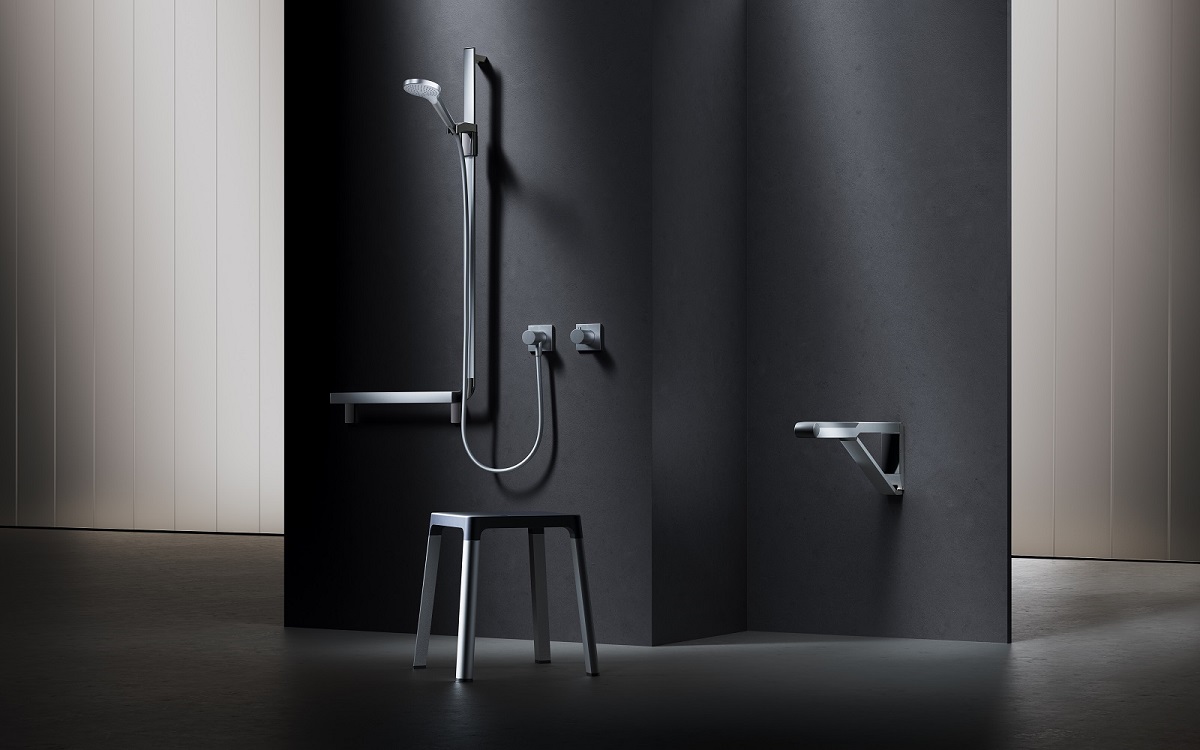
Image credit: KEUCO
“Our aim was to develop accessible bathroom products from a completely new perspective. Timeless, very clear, aesthetic forms, permanently perceived as beautiful, even after many years. Independent of the spirit of time and trends and at the same time, beyond anything known so far. Out ambition was to create something special, right down to the smallest detail, and making it technically possible. A combination of German engineering and top-quality implementation in every respect.”
If a bathroom brand can pair up with a leading automotive design studio to create a better environment for guests in need of extra facilities, and hotels such as Hotel Brooklyn can centre its entire hospitality model around its smart, accessible facilities, then there is no excuse for other hoteliers, brands and manufacturers to follow suit. After all hospitality, a human-centric industry, is for everyone, right?
Main image credit: Henry Woide

